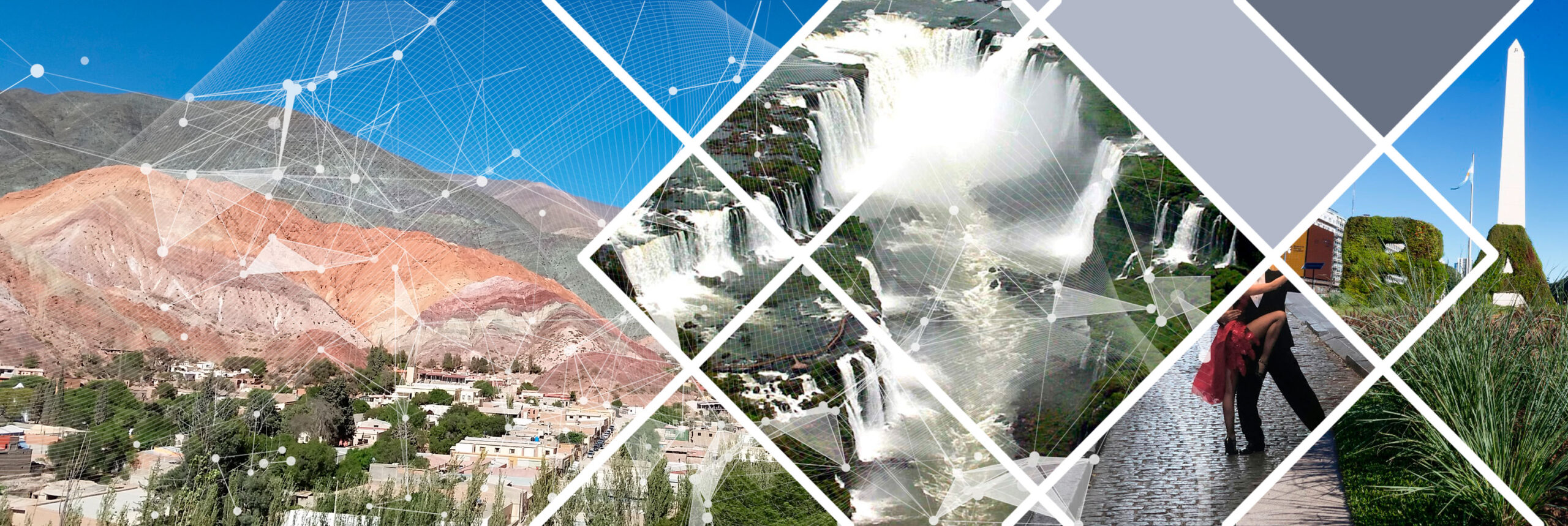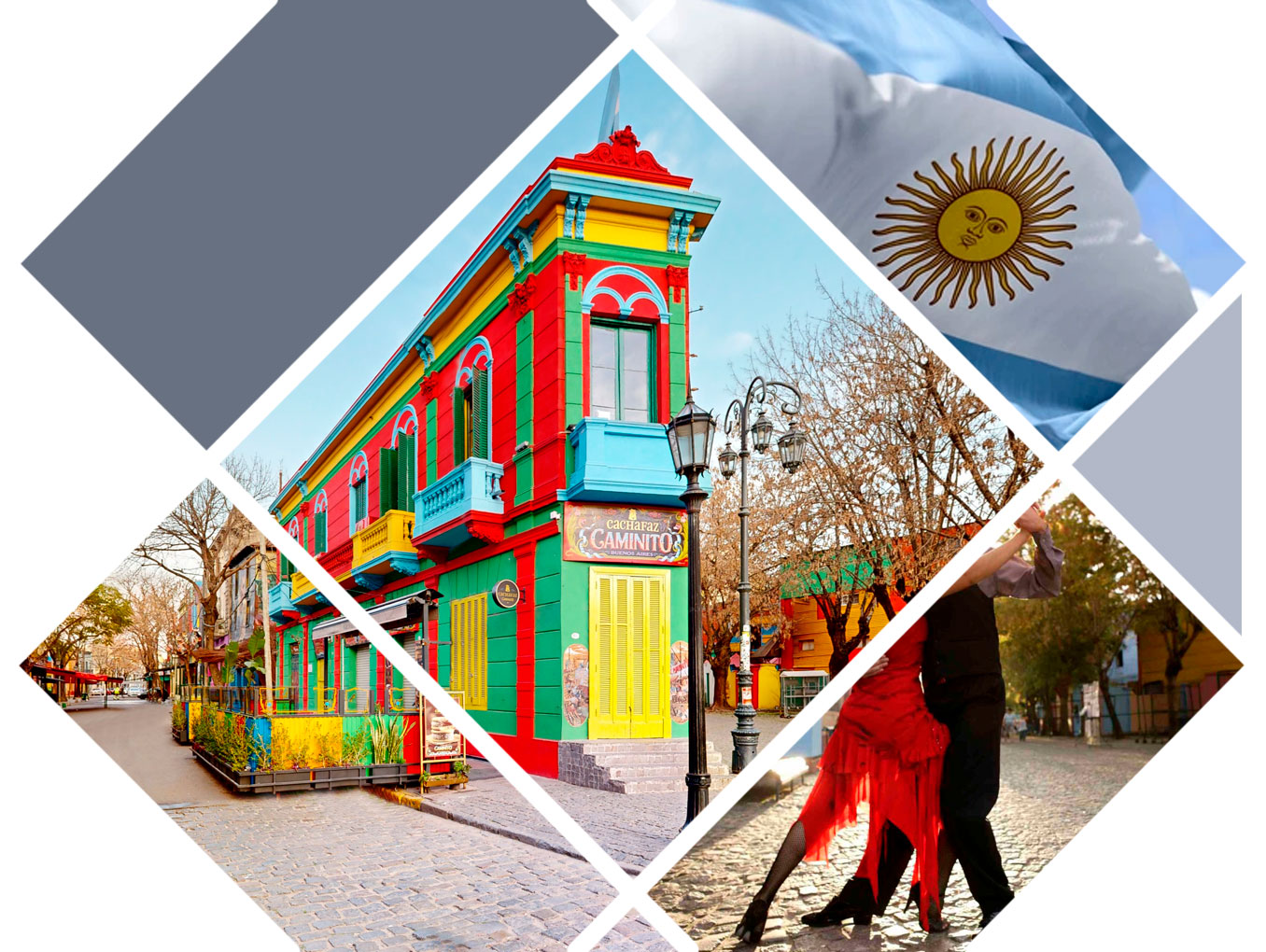
ARGENTINA
Argentina is a sovereign country in South America, located in the extreme south and southeast of said subcontinent.

Its territory, which covers a large part of the Southern Cone, borders to the north with Bolivia and Paraguay, to the northeast with Brazil, to the east with Uruguay and the Atlantic Ocean, to the west with Chile and to the south with Chile and the Atlantic waters of the Drake Passage. Argentina is organized as a decentralized federal State, made up of twenty-three provinces and the Autonomous City of Buenos Aires (CABA).
President: Javier Milei
Capital: Buenos Aires City
Independence: July 9, 1816
Population: 46,044,703 inhabitants, (2022 Census)
Area: 2,780,400 km²,
ALADI integrates Mercosur, the Community of Latin American and Caribbean States (CELAC) and the Organization of American States (OAS). It is the only Latin American country that has a scientific research and teaching center among the ten best in the world.
Argentina has great natural resources and benefits from it – especially from its extensive plains of fertile lands, it has a sector oriented towards the exploitation and agricultural export of advanced technology, with exports of services based on knowledge and technology with an important projection of exports and considerable development of its nuclear and satellite industries.
Argentina is the world’s leading producer of yerba mate, it is one of the 5 largest producers in the world of soybeans, corn, lemons, pears and sunflower seeds, one of the 10 largest producers in the world of grapes, artichokes, tobacco and cotton, and one of the 15 largest producers in the world of wheat, barley, sugar cane, sorghum and grapefruit. In addition to producing: potatoes, rice, oranges, peanuts, cotton, onions, tomatoes, pears, apples, oats, beans, carrots, peaches, olives, garlic, honey.
En ganadería, In livestock, Argentina is a world producer of beef, chicken meat, pork, a producer of cow’s milk and a world producer of chicken eggs.

